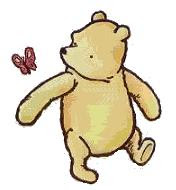Throughout the short pages of chapter six and seven, I frequently asked myself, where is this book headed? What is the author trying to prove or tell with this story? Is there any point at all? I feel that the author is just bringing ridiculous characters into Candide's life, and then killing them off in different ways, after they become useless and no longer part of the story. Poor Candide has been whipped quite alot, and hasn't had the greatest fortunes after Cunegonde kissed him. The author seems very focused on the act of killing, and the process as well. He seems to enjoy new ways of inventing grotesque endings for the pitiful people in his book.
Now, after Candide has been whipped once more, and his fellow companions killed, he is approached by yet another interesting figure. This time an old woman is kind to him, and brings him to a place to rest and eat. Will she turn out to be killed as well? After a couple days of experiencing kindness, Candide is brought into the presence of the - no way - dead Cunegonde. The lovers have a moment of strength loss, and then, recovering from the shock, they ask eachother what had happened since the last time they had seen eachother.
The chapter ends with the beginning of Cunegonde's story... however, I am still asking myself where the author is headed in this confusing and seemingly no-point novel. Is there an underlying message that he is trying to slip us between the moments of death and mishap? Perhaps he is trying to tell us that the world isn't one beautiful fairy tale. Whatever he is trying to portray with his novel, I am still clueless and utterly lost. What is the point of the novel, or where are we headed?


